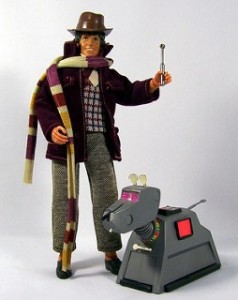In July 1979, when I was 9 years old, my mum gave me the greatest news: my best friend Martin would be coming round to our house every day of the summer holiday! She had told us she was going to be a childminder, and I hadn’t given it much thought…. But now! Martin! Every day! It wasn’t fun for very long, though: his annoying sister came too, and he broke most of my toys. When school started again, we sat on opposite sides of the classroom. I don’t remember speaking to my mum about how difficult it was, but after that she only looked after toddlers, which turned out to be much more fun – somehow when a three year old is rooting through your stuff it’s funny rather than upsetting. Even when one of them loses the Sonic Screwdriver of your favourite toy.
Four years later we moved to a bigger house with a spare bedroom, and my parents became foster carers. I remember a larger-than-life Social Worker visiting us a few times before the first child came to stay. His name wasn’t Andrew (in the same way that Martin’s name wasn’t Martin). He was a few years younger than me, and the truth is I don’t remember him having much impact on my daily life – I was going to school and meeting up with my friends. My youngest brother found it hardest, because Andrew was sometimes verbally abusive towards our mum, and whereas I took her at her word that she wasn’t bothered by it, my brother found it distressing. The Social Worker who had assessed my parents took him out for a burger and a chat (I would later learn that this is a classic Social Work manoeuvre) and he was better after that.
A long succession of placements followed. One of the most affecting for our family as a whole was two young girls whose mother was seriously ill and required an operation. They were distraught when they came to us, the eldest child in particular – she knew enough about why they weren’t with mum to be worried she might never see her again. I found this hard because I realised that these children could be me and my brothers, it could have been our mother that was ill. I think maybe I had taken for granted up to that point just how skilful and nurturing a parent was my mum – until the first neglected child had come to live with us I had no idea that all parents weren’t made that way. I saw my mum comfort these girls, and none of the rest of us resented the time she needed to devote to them. I was proud of her. It was a good day when the girls’ Social Worker collected them from us to take them home.
When I was nineteen I went off to university, and having no idea what I wanted to do with my life I began a degree course in accountancy, purely on the basis that I was quite good with numbers. However, every time I went home I found myself much more interested in the progress of the children in my parents’ care. I visited one of my college tutors and told him this, and he was pleasantly surprised that one of Thatcher’s children had apparently developed a social conscience. I wasn’t sure at the time how that happened, but looking back it must have been a combination of factors including the way I was parented, my experience of fostering, and chatting to the Social Workers who came to visit the children in my home. One of these Social Workers inducted me into the Cosa Nostra, also known as Kent County Council. For 18 years, whenever I tried to get out, they pulled me back in.
Nothing prepares you for the first time you decide a child can no longer remain in the care of his or her parents. You are told that it is an organisational response, and the final decision is that of the Court. But who decides to elevate a ‘child in need’ case to care proceedings? Who makes the initial decision that ends with a Court ordering the removal of a child? I was 24 years old when I made that decision for a 3 year old boy who wasn’t named Matthew. When I got the Court Order I returned to my office to get the address of the foster carer I would take him to once I had collected him from his parents. An hour later I was holding his hand and knocking on the front door of my childhood home.

